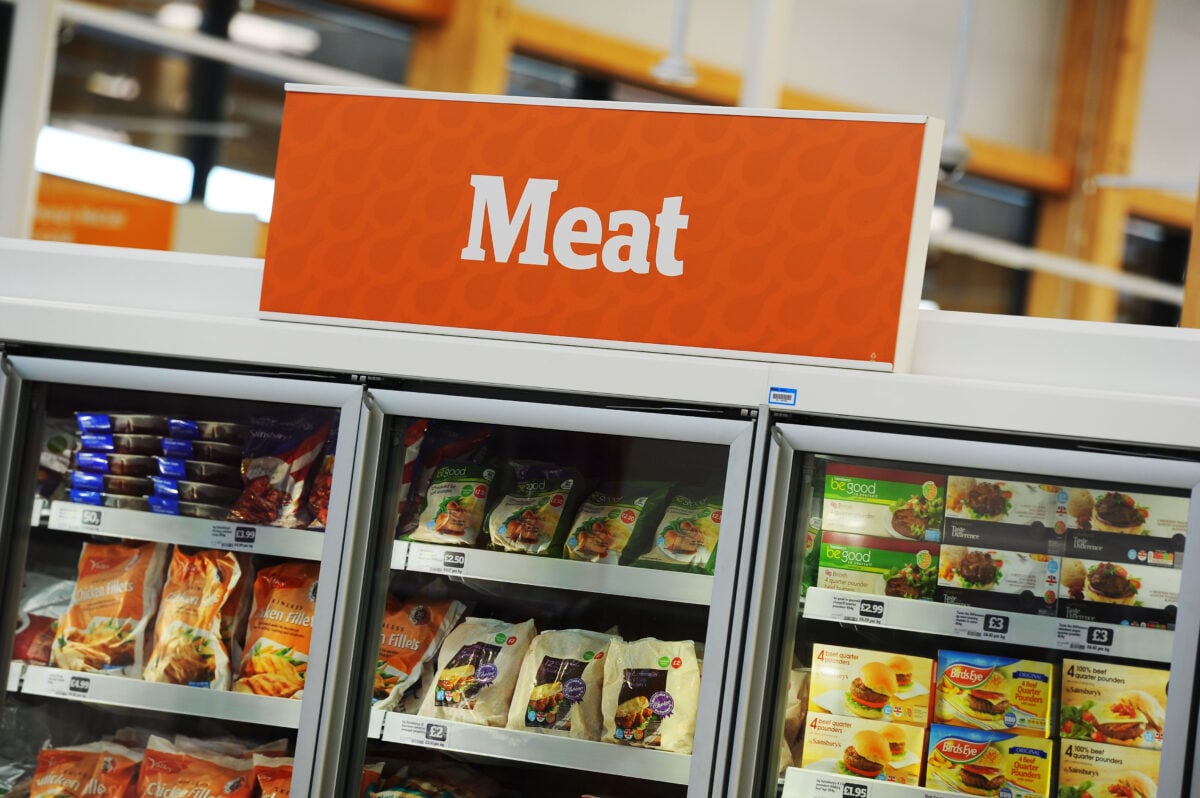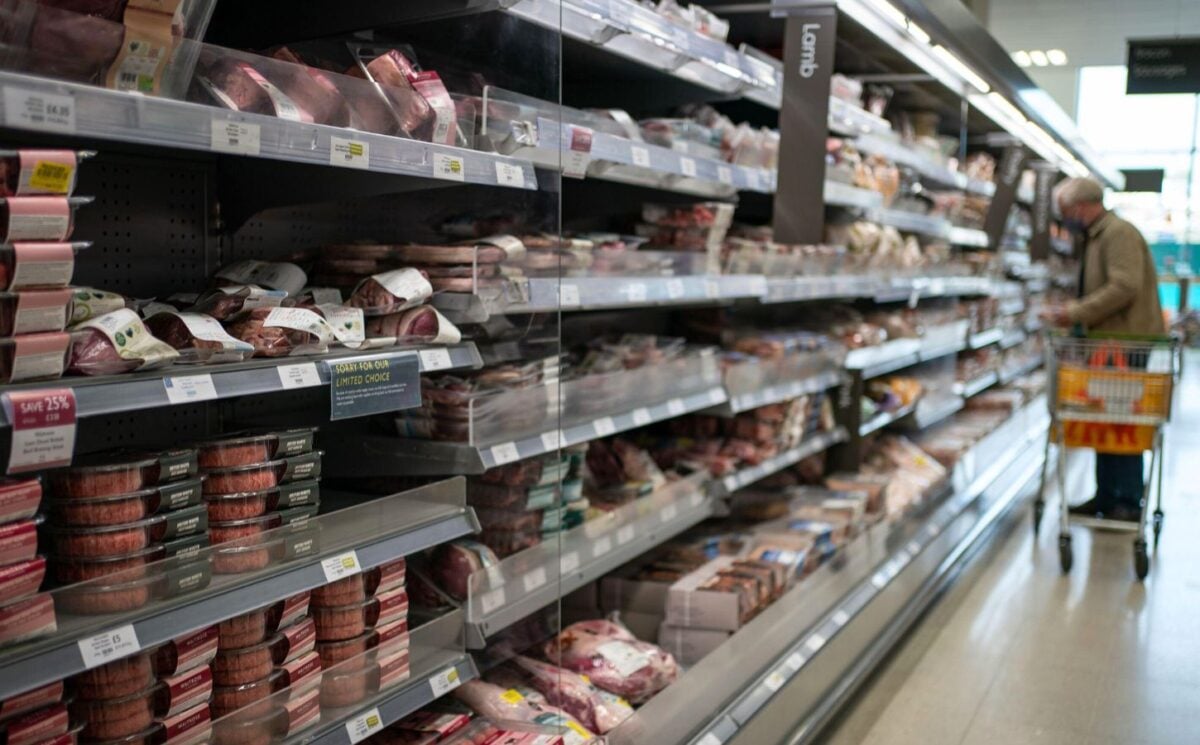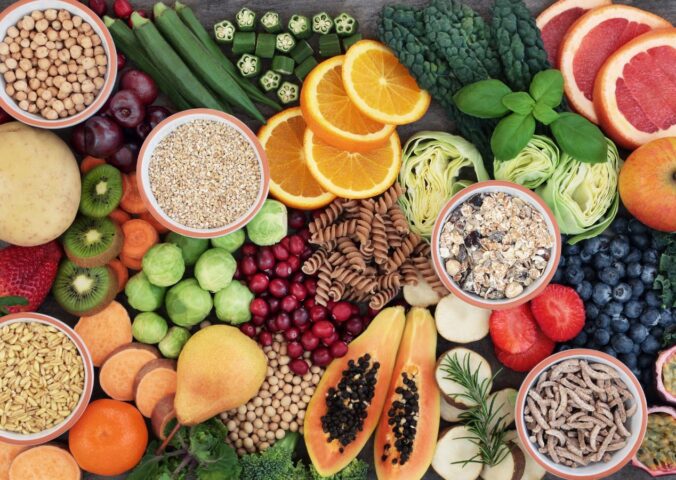Health professionals have expressed disappointment in the return of the UK Agriculture and Horticulture Development Board’s (AHDB) controversial “Let’s Eat Balanced” ad campaign.
Read more: Advertising Authority Orders Removal Of ‘Greenwashing’ Irish Dairy Advert
AHDB is relaunching the campaign from today (August 27) until September 30 with adverts across on-demand TV and social media. It will also feature in the stores and on websites of eight major retailers, with Let’s Eat Balanced stickers on nearly three million packs of meat, according to AHDB.
In the summer, health professionals from Doctors’ Association UK (DAUK) and Plant-Based Health Professionals UK (PBHP UK) wrote an open letter describing the campaign as “inaccurate and misleading.” They said that the campaign is “at odds with established scientific evidence on healthy and sustainable diets.”
“I am hugely disappointed about the relaunch of the Eat Balanced campaign,” Dr. Shireen Kassam, founder of PBHP UK who co-wrote the open letter, told Plant Based News. “The initiative flies in the face of current health and sustainability recommendations, which encourage limiting or avoiding red meat consumption because of the harm to health and the environment.”
Meat and dairy not essential

The new campaign will utilize a “THIS & THAT” message “to remind people that a little bit of ‘this’ with a little bit of ‘that’ is key to a well-rounded diet,” says AHDB. In particular, Let’s Eat Balanced promotes the idea that beef, lamb, and dairy are “natural sources of B12” and protein.
The campaign will also promote the practices of “some” farmers that AHDB says are “environmentally friendlier.”
Dr. Kassam disputes AHDB’s claims. “Neither red meat nor dairy provide essential nutrients,” she said. “It is abundantly clear from decades of research that getting protein from plant sources is better for health resulting in a reduced risk of cardiovascular disease, type 2 diabetes, certain cancers and dementia. Vitamin B12 is considered to be only found in animal source foods but it is made by micro-organisms and is easily obtained through supplementation when meat is not consumed.”
Read more: Vegan Meat Boss Criticizes Pork Brand Jolly Hog Over ‘High Welfare’ Claims
Several studies show that whole foods plant-based diets are healthy and lower the risk of disease. According to research published earlier this year, the NHS would save £6.7 billion a year if everyone went vegan.
AHDB previously “strongly” refuted the criticism in the open letter in a statement previously to Plant Based News. Let’s Eat Balanced “aligns with the Great Britain Nutrition and Health Claims Register and supports the government’s dietary guidelines, as outlined in the Eat Well Guide,” it said.
Plants better for environment
Dr. Kassam also condemned AHDB’s promotion of meat and dairy as sustainable.
“In the UK, 70 percent of emissions from farming come from the production of red meat and dairy,” she said. These “also take up a huge amount of land and hence a massive reduction in production and consumption is needed to meet climate and nature targets.”
According to Ian Boyd, Professor of Biology at the University of St. Andrews, the use of UK land for farming animals is grossly inefficient. “Animals are often fed plant-based food produced on land which could also produce human food,” he wrote in The Conversation. “Around 75% of the calories fed to livestock in the UK comes from these sources. As much as ten plant-based meals could be produced for the same material cost as it takes to produce one meat-based meal.”
British wildlife is in a state of serious decline according to the most recent State of Nature report. A report by Harvard academics found that the UK could save 12 years of carbon emissions by converting land currently used for farming animals back to forest. This would also enable the country to become self-sufficient in its food production.
Read more: Austria’s New Dietary Guidelines Recommend Less Meat, More Plant Proteins






